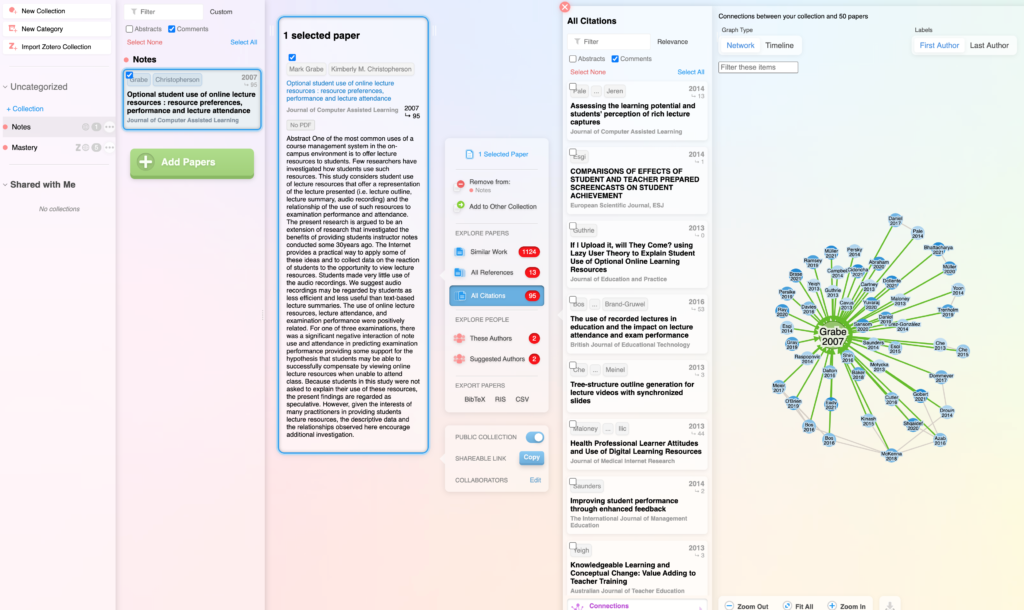I was by trade a research-focused academic in the fields of educational psychology and educational technology. I conducted research and generated publications based on the data my studies generated. I also wrote and continue to write instructional materials (books, blog posts) for educators based mostly on the research of others. Scientific research builds on itself and you fashion the explanation of your findings from your data, your methodology, and the positions and findings of other researchers. Writing to educate relies heavily on the analysis of existing research and you make your case by summarizing and referencing multiple articles authored by others. There is a tremendous amount of reading that is involved in both types of activity.
Aside from the reading, this type of work requires the storage, organization, and retrieval of information. There is also the challenge of searching the nearly limitless trove of existing work for publications that are relevant to your specific interests. You have to do the work of reading and understanding content, but you can use technology to make the related tasks (storage, search, organization, retrieval) easier. Many of us who do this work are constantly searching for such tools and this quest also ends up being an area of investigation. I have written multiple posts on this blog about tools for taking and organizing notes.
This post is focused on a tool for locating relevant content I should read. There are lots of ways to search (e.g., Google Scholar) for relevant content, but Research Rabbit goes further and builds on the web of citations that exists among published research. Rather than being limited to the citations included as part of a given source, Research Rabbit reveals the web of sources that spread among individual papers – the citations in one paper point to other papers and the citations in these papers point to other papers, etc.
This web is interesting to explore. As is often the case with search, I started by searching myself. Quite a few years ago, I was conducting research on the consequences of distributing lecture notes in large lecture classes. There are interesting related questions. Do students skip class if notes are available? Do students who use these notes perform better than students who use only their own notes? These topics have received more attention lately as educators consider what online resources to make available to students. I began my search with a paper on this topic I published in 2007. From this paper, I can locate papers that cited my work. I can collect the information I need to locate and read papers that offer abstracts that interest me. I can see what papers these authors cited and who now cites them. I can build topical collections of papers and I can offload these collections to another tool better suited to generating and organizing my personal notes after having read some of these papers (see second image showing a collection of papers on Mastery Learning brought into Zotero).


Here is a link to a YouTube video on the use of Research Rabbit.
These tools are free and available online. You don’t have to be a researcher to use such tools (see the YouTube video). Find the title of a paper that interests you and you can then locate related content by entering the title of this paper in Research Rabbit.
![]()
You must be logged in to post a comment.